The online opera guide of Camille Saint-Saens’ aria MON COEUR S’OUVRE A TA VOIX
Read Interesting facts and hear great YouTube Videos about Saint-Saens’ famous aria “MON COEUR S’OUVRE A TA VOIX“.
If you want to read and hear more about SAMSON ET DALILA, click on this link to the opera portrait
The aria MON COEUR S’OUVRE A TA VOIX – synopsis and background
Saint-Saens has written no less than three great, immortal arias for the role of Dalila. This aria is one of the most beautiful and seductive arias from the entire opera repertoire.
Synopsis: Dalila is a priestess of the Philistines. The Jews were able to break the rule of the Philistines with the help of their leader Samson, who has magical powers. Dalila is a fervent patriot and wants to unveil the secret of his power and break his power. With her powers of seduction she has already been able to enchant Samson, but each time Samson eluded the pressing questions. Samson has just appeared. He is torn apart, he has confessed his love to her and at the same time wants to break away from her, because he knows about the danger of their relationsship. For Dalila it is the last chance to learn the secret.
Dalila wants to seduce Samson for reasons of state, but one senses that there is more behind her seductive promises. She may not be in love with Samson, but she still has feelings for him. She tries to seduce Samson with her warm, erotic voice. The orchestra’s accompaniment is delicate, sometimes playful, and completely dispenses with brass and percussion instruments.
Saint-Saens’ expression markings are “dolcissimo e cantabile”. Her voice may nevertheless be radiant. Her triumph is near, for Samson has just confessed his love to her.
The voice and the orchestra shine in a luminous major. The orchestra plays swelling and declining chords imitating a soft, billowing breeze, an allegory for beauty and seduction.
But Dalila has not yet reached her final objective. She must discover Samson’s secret. Sweetly, she begges Samson to speak to her to dry her tears. The aria is written in a pleasant tessitura, in which the singer can present her most beautiful colours.
With a great ritardando and diminuendo she ends the first part.
The second part begins with a dozen semitone steps down which are sung in perfect legato.
The tone becomes more urgent and she sings twice the ecstatic “versez moi l’ivresse” (“fill me with rapture”) with which she wants to win Samson.
A beautiful clarinet passage takes up the theme painfully sweetly.
The second part again takes up the motives of the first part. The sound of the orchestra changes more and more with seductive oriental figures, until in the last part only the western harmonies are heard again.
At the end Samson surrenders, the piece becomes a duet and he languishes several times “Dalila, je t’aime”.
In the concert version the tenor part is omitted, the singer sings “Samson, je t’aime”.
Written for a “dramatic Mezzosoprano”
The role of Dalila is written for a dramatic Mezzosoprano. The dramatic Mezzosoprano must have a strong, voluminous voice. The demand for vocal creativity is high, which is why these roles are usually entrusted to vocally mature and experienced singers. The role requires a high resilience and endurance of the singer.
The Aria – the text of MON COEUR S’OUVRE A TA VOIX
Mon cœur s’ouvre à ta voix,
Comme s’ouvrent les fleurs
Aux baisers de l’aurore!
Mais, ô mon bien-aimé,
Pour mieux sécher mes pleurs,
Que ta voix parle encore!
Dis-moi qu’à Dalila
Tu reviens pour jamais,
Redis à ma tendresse
Les serments d’autrefois,
Ces serments que j’aimais!
Ah! réponds à ma tendresse!
Verse-moi, verse-moi l’ivresse!Ainsi qu’on voit des blés
Les épis onduler
Sous la brise légère,
Ainsi frémit mon cœur,
Prêt à se consoler,
À ta voix qui m’est chère!
La flèche est moins rapide
À porter le trépas,
Que ne l’est ton amante
À voler dans tes bras!
Ah ! réponds à ma tendresse!
Verse-moi, verse-moi l’ivresse!
My heart opens to your voice
Like the flowers open
To the kisses of the dawn!
But, oh my beloved,
To better dry my tears,
Let your voice speak again!
Tell me that you are returning
To Delilah forever!Repeat to my tenderness
The promises of old times,
Those promises that I loved!
Ah! respond to my tenderness!
Fill me with ecstasy!Like one sees the blades
Of wheat that wave
In the light wind,
So trembles my heart,
Ready to be consoled,
By your voice that is so dear to me!The arrow is less rapid
In bringing death,
Than is your lover
To fly into your arms!
Ah! respond to my tenderness!
Fill me with ecstasy!
Famous interpretations of MON COEUR S’OUVRE A TA VOIX
Maria Callas was a soprano and could also sing mezzo-soprano roles with her expressive depth. Her lines of this aria are painfully long and beautiful.
Mon coeur s’ouvre à toi voix – Callas
Shirley Verret’s voice was light and yet opulent and sensual.
Mon coeur s’ouvre à toi voix – Verrett
Jessy Norman sings the aria a bit slower with a touching emotionality. She sings with a dark beautiful voice, even though as a soprano the low parts were not in the pleasant zone.
Mon coeur s’ouvre à toi voix – Norman
Marylin Horne had a perfect technique and sang the aria in great legato, perhaps a little less seductive, more dreamy.
Mon coeur s’ouvre à toi voix – Horne
Elina Garanca has a seductive rather bright mezzo-soprano who shines beautifully in this aria.
Mon coeur s’ouvre à toi voix – Garanca
Olga Borodina’s voice captivates with its wonderful warmth, an almost “comforting seduction”.
Mon coeur s’ouvre à toi voix – Borodina
Agnes Baltsa sang this aria with beautiful long lines and erotic vibrato.
Mon coeur s’ouvre à toi voix – Baltsa
Prêtre’s complete recording of Rita Gorr and John Vickers is one of the most important recordings of this opera. Gorr had a voluminous, almost metallic voice, which comes to full glory in the rather deep tessitura of Dalila.
Mon coeur s’ouvre à toi voix – Gorr
Peter Lutz, opera-inside, the online opera guide to the song “MON COEUR S’OUVRE A TA VOIX” from the opera “Samson et Delila” from Camille Saint-Saens.

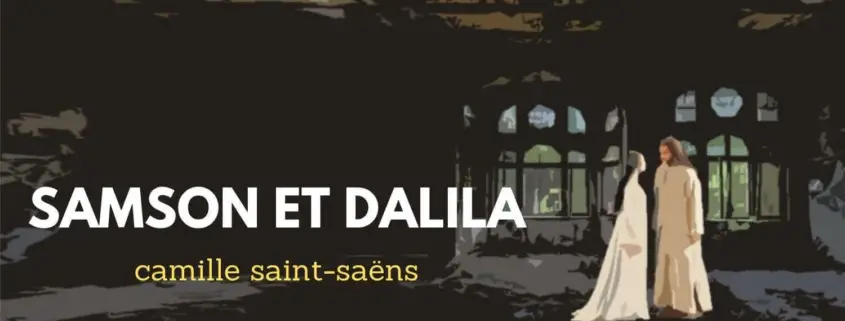
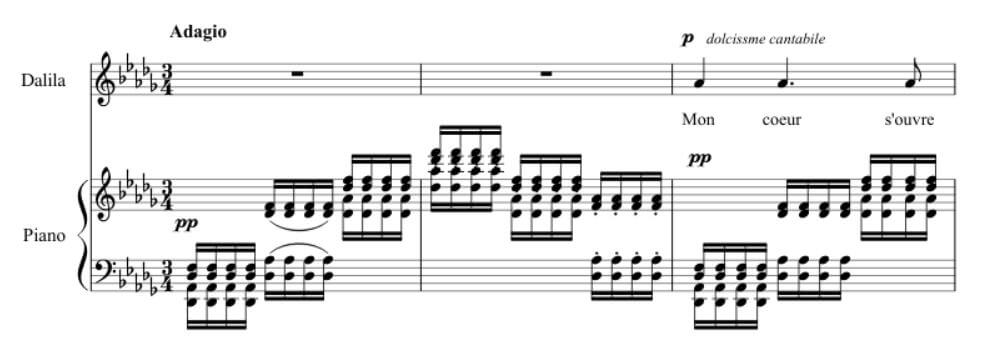
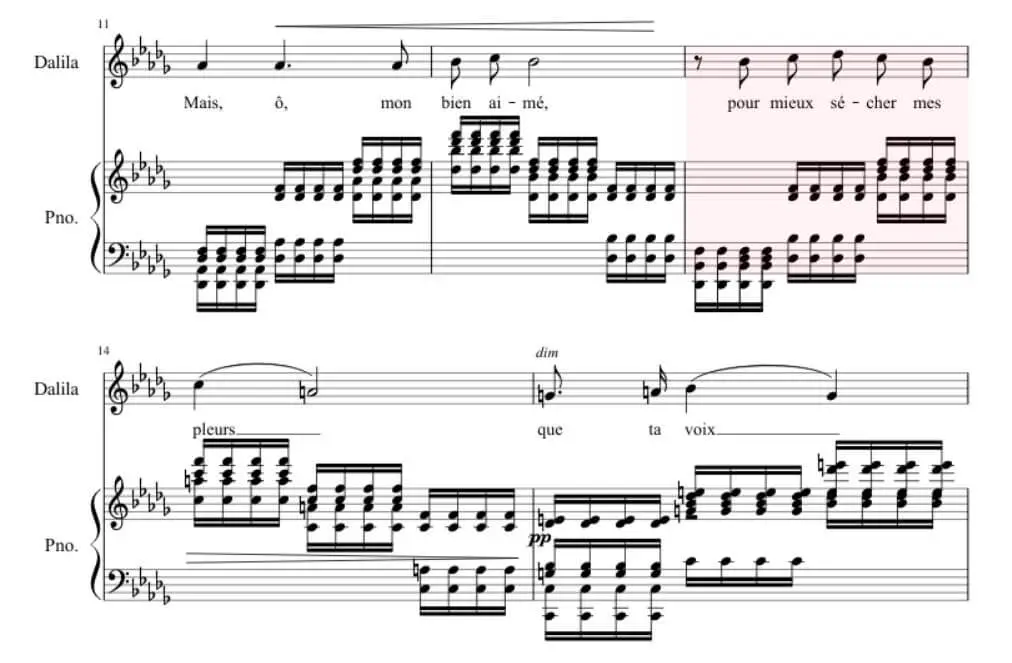
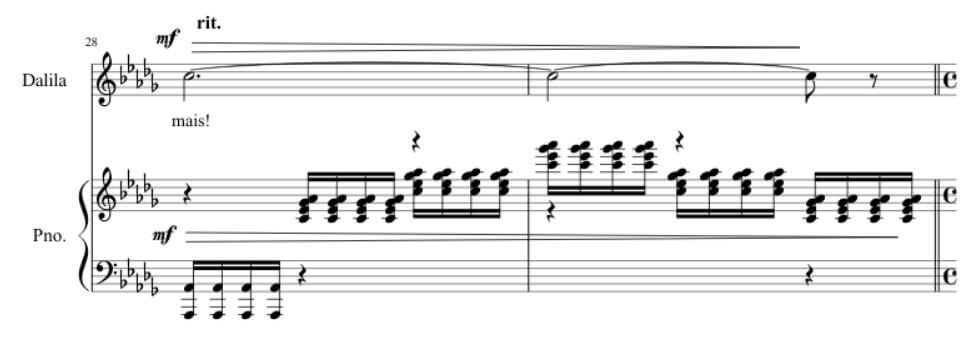

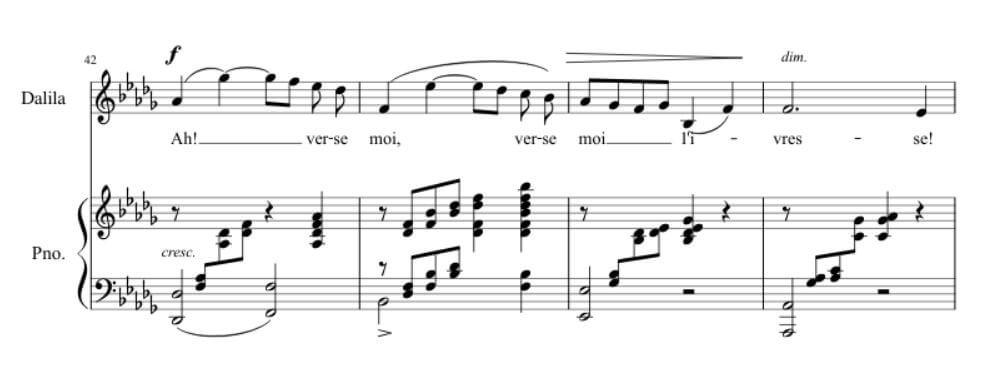


Leave a Reply
Want to join the discussion?Feel free to contribute!